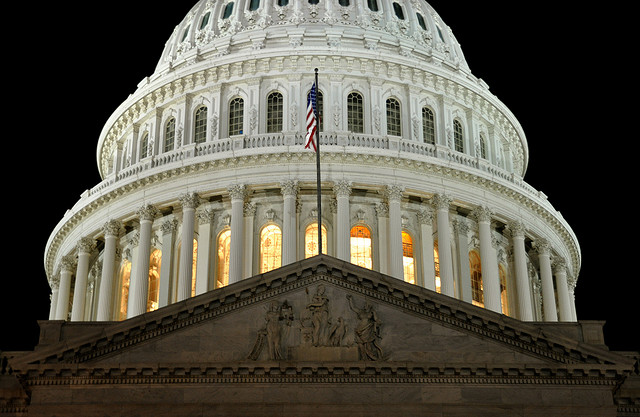Visiting a diminished D.C. still productive for Nature Conservancy
By the time you read this, let’s hope the federal government shutdown is behind us. Yet we did not see the shutdown coming a year ago, when the Nature Conservancy planned a day in October when our senior staff and over 100 volunteers who serve on our state boards of trustees would come to Washington D.C. to talk about the importance of conservation with members of Congress.
When it became clear this long-planned day would take place during the shutdown, we wondered whether we should cancel. Should we take their time or attention away from the concerns at hand? With tickets purchased and hotel reservations locked in long ago, the only way was forward.
We scrambled to call and see if the meetings would still take place – and with the reduced staff, one representative even answered his own phone. While time would not allow for us to meet with every member of the Michigan delegation, we were glad each office confirmed that our meetings were a go. We were warned of huge security lines as each federal building only staffed one entrance, but what we found was a ghost town of empty streets, no lines and echoing hallways.
Bottom line, going forward with the meetings was the right thing to do and I am really glad we did it. We had an important message to convey to these leaders—the importance of natural resources and conservation, something that, as residents of the Great Lakes state, most Michiganders understand. And, as it turns out, conservation is a unifying message, as shown by a poll just taken in September 2013:
- 83 percent believe conservation programs benefit public health, 85 percent believe conservation programs contribute to quality of life, and 71 percent believe conservation programs create jobs;
- 73 percent believe that protecting land and water and having a strong economy are compatible, and past polling shows that this belief has been consistent over the years;
- 8 in 10 people believe the public receives its money’s worth when we invest in water, land, air, and wildlife; and
- 77 percent say funding for conservation has a big return.
We had positive meetings with members of Congress from both sides of the aisle, a reassuring experience. In some ways, it isn’t surprising that there is bipartisan recognition of the importance of natural resources, given that our economy and quality of life depend on them, but we have to work further to agree on how to pay for it.
Natural resource spending amounts to only a little more than 1 percent of the federal budget, and this proportion has steadily declined in recent years. Yet, we were eager to share that these investments in natural resources, outdoor recreation and historic preservation provide $1.7 trillion in economic impact, and support over 12 million jobs nationwide.
Of course, investments in natural resources, outdoor recreation and historic preservation did not cause the federal budget deficit, and even the most drastic cuts to these programs cannot fix the deficit. But we hoped to help these members of Congress see the importance of addressing the structural causes of the deficit in a comprehensive way rather than trying to balance the federal budget by simply cutting discretionary spending including spending for conservation and the environment.
The importance of ending the shutdown goes deep and wide – but if viewed narrowly just from the conservation perspective, we have so much to lose if don’t come together to work on shared solutions. It is essential for our members of Congress in the Great Lakes states to understand this. If we wish to protect the Great Lakes from challenges such as aquatic invasive species and other systemic issues, it requires collaborative solutions across the region. Let’s look for unifying issues such as conservation to begin building the bridge forward towards a future with more sound, cooperative, diplomatic leadership for the common good.
See what new members are saying about why they donated to Bridge Michigan:
- “In order for this information to be accurate and unbiased it must be underwritten by its readers, not by special interests.” - Larry S.
- “Not many other media sources report on the topics Bridge does.” - Susan B.
- “Your journalism is outstanding and rare these days.” - Mark S.
If you want to ensure the future of nonpartisan, nonprofit Michigan journalism, please become a member today. You, too, will be asked why you donated and maybe we'll feature your quote next time!


 WORTH A VISIT: Washington D.C. may be a ghost town in a government shutdown, but they left a few lights on, and Nature Conservancy staff and volunteers are glad they did. (Photo by Flickr user Kevin Burkett; used under Creative Commons license)
WORTH A VISIT: Washington D.C. may be a ghost town in a government shutdown, but they left a few lights on, and Nature Conservancy staff and volunteers are glad they did. (Photo by Flickr user Kevin Burkett; used under Creative Commons license)